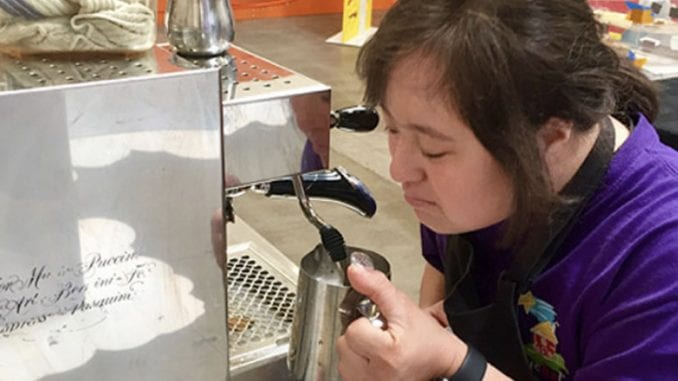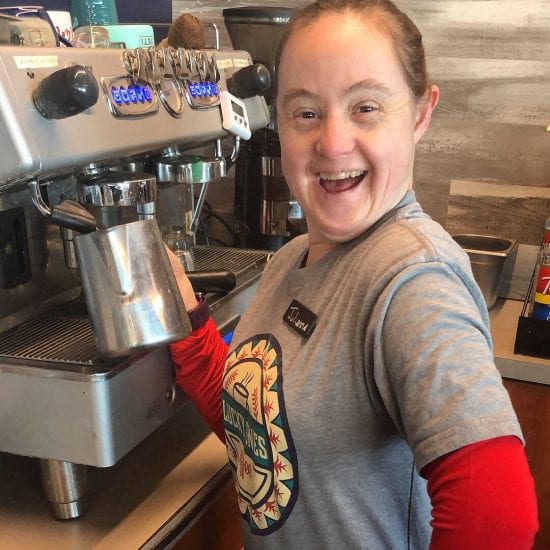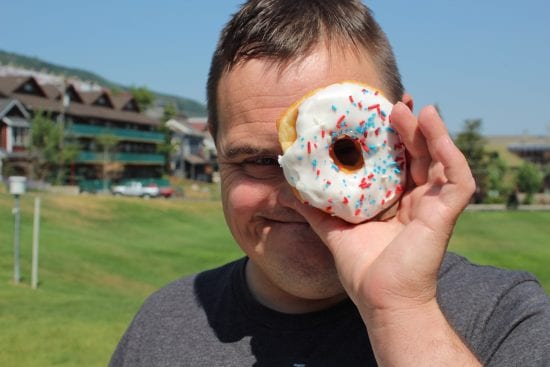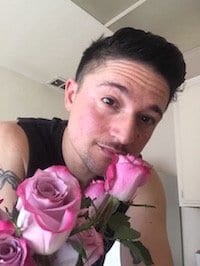
For baristas with special needs, one of the biggest obstacles to employment can be breaking the stigma.
BY MARK VAN STREEFKERK
BARISTA MAGAZINE ONLINE
Cover photo courtesy of Mychal’s Learning Center
A staggering percentage of Americans with disabilities are unemployed. Katie Holyfield, executive director and cofounder of Lucky Ones Coffee in Park City, Utah, says, “One in five people have a disability, and of those 80% are unemployed”—and she’s unequivocal about the reason why.
“(It’s) stigma, more than anything,” Katie says. “From my experience (people with disabilities) are the hardest-working and (most) excited employees. Hearing other business (owners) say that they have tried hiring someone with a disability and, ‘It didn’t work out,’ is such a funny concept to me—to have it not work out with one individual and then count off a whole group of individuals. Disability is such a small part of most people’s identity, and yet employers still see it as a disadvantage.”

Katie and Taylor Matkins were both working at The National Ability Center when they came up with the idea to start Lucky Ones Coffee. Taylor was inspired by Bitty & Beau’s Coffee, a North Carolina-based chain, with locations in Georgia, Maryland, and South Carolina, that employs people with intellectual and developmental disabilities. Lucky Ones has 17 staff, and with another location in the works, plans on hiring and training 12–15 additional team members.
Katie says about Lucky Ones Coffee, “We are firm believers in teaching universal job skills. Meaning not adapting everything that we do in the coffee shop to our mission, but instead investing the time into our staff to train them to truly be a barista. There are other shops that run on a similar model that adapt and get machines that make the job less time-consuming to train. We want our employees to love working here, but also have the freedom that if they want to work at another coffee shop, they have the confidence and skills to do that. We offer a full espresso bar, and pride ourselves on getting told our baristas make the best dry cappuccino in town.”
Another café that hires and trains people who happen to have disabilities is Mykie’s bakery, catering, and café services in Southern California, which operates under Mychal’s Learning Place. Project manager Blaisdell Shaw was asked to start a barista training program four years ago by Mychal’s founder Ed Lynch after he experienced specialty coffee in the Pacific Northwest.

Blaisdell makes sure Mykie’s barista training is an educational experience with room for making mistakes. She notes that each barista in training gets as much one-on-one time as necessary. “(We’re) actually working on the craft of being a barista. Really assessing the espresso and making sure it’s looking right and the shots are pulling right. We tamp all of our shots and time them, and I’m teaching the students what that looks like and how to adjust things and whatnot,” she says. “I had a huge training manual and it was going to be a lot of sitting down, and talking about things, but then I realized real-life practicum is probably the best way to do it. I come from a barista training background so that helped,” Blaisdell says.
Mykie’s started as a pop-up at farmers markets, then acquired a coffee truck, and now operates full-time out of several Los Angeles businesses, as well as doing special events.
Both Lucky Ones and Mykie’s are using barista training to empower people who happen to have disabilities to find a greater place in the community. “Our purpose is to promote inclusion and understanding within our community for this population,” Blaisdell says. “They are very capable and very willing. We want to break down some of the barriers and really promote understanding for people with special needs.”

ABOUT THE AUTHOR
Mark Van Streefkerk is Barista Magazine’s social media content developer and a frequent contributor. He is also a freelance writer, social media manager, and novelist based out of Seattle. If Mark isn’t writing, he’s probably biking to his favorite vegan restaurant. Find out more on his website.
